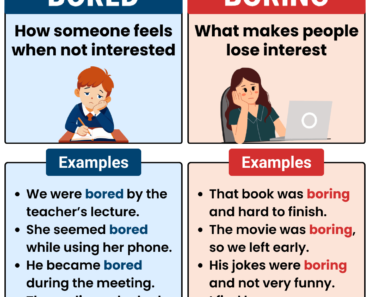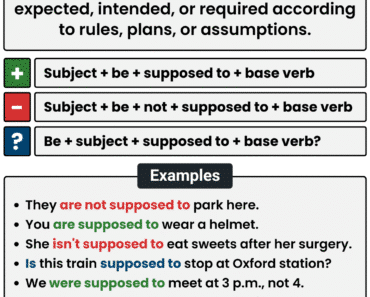The first conditional is used to describe real and likely future situations that depend on a condition. It’s often used for warnings, offers, advice, and plans, and is common in everyday English to talk about decisions and consequences.
In this article, you’ll learn what the first conditional means, when to use it, how to form it, and see real-life examples to help you understand and use it correctly.
What Is the First Conditional?
The first conditional is used to talk about possible future situations that depend on a real condition. It describes something that might happen if a certain condition is met.
It’s called the “first” conditional because it shows the first level of possibility—more likely than second or third conditionals, which are more imaginary or hypothetical.
First conditional sentences are used to describe realistic and likely events in the future, especially when the condition is possible or likely to happen.
Examples:
- If I see him later, I’ll tell him the news.
- If they don’t leave now, they’ll miss the train.
When to Use the First Conditional
You can use the first conditional for several purposes:
-
Making predictions
If you study, you’ll pass the exam. -
Giving warnings
If you touch that wire, you’ll get shocked. -
Offering help or support
If you need anything, I’ll be there. -
Giving advice
If it rains, take your umbrella. -
Talking about plans or decisions
If we finish early, we’ll go out for dinner.
First Conditional Structure
The first conditional has a clear and simple structure:
Form: If + Present Simple, Will + Base Verb
The condition uses the “present simple”, and the result uses “will + base verb”:
- If it rains, we’ll stay inside.
- If you work hard, you’ll succeed.
You can also reverse the order of the sentence:
- We’ll stay inside if it rains.
- You’ll succeed if you work hard.
Note: No comma is needed if the “if” clause comes second.
Other Verbs Instead of “Will”
In the result clause, we often use will, but we can also use other modals and verb forms to express different meanings:
- If he’s late, he might miss the meeting. (possibility)
- If you finish early, you can leave. (permission or ability)
- If you need help, I could help you. (suggestion)
Imperatives:
- If you go out, take your phone.
- If she calls, tell her I’m busy.
Going to for planned actions:
- If we leave now, we’re going to catch the train.
- If he finishes early, he’s going to meet us at the café.
Examples of First Conditional Sentences
- If you study hard, you’ll pass the exam.
- If it rains tomorrow, we’ll cancel the picnic.
- If she gets the job, she’ll move to London.
- If they arrive late, we won’t start the meeting.
- If I see John, I’ll give him your message.
- If we don’t leave now, we’ll miss the bus.
- If he doesn’t wear a coat, he’ll catch a cold.
- If you eat too much cake, you’ll feel sick.
- If we hurry, we’ll get good seats.
- If she studies medicine, she’ll become a doctor.
- If the traffic is bad, I’ll be late.
- If you don’t water the plants, they’ll die.
- If I finish work early, I’ll call you.
- If they invite me, I’ll go to the party.
- If I don’t charge my phone, it will die.
- If it’s sunny this weekend, we’ll go hiking.
- If you don’t lock the door, someone might break in.
- If we don’t buy tickets today, they will sell out.
- If I feel better tomorrow, I’ll go to school.
- If you touch that wire, you’ll get a shock.







